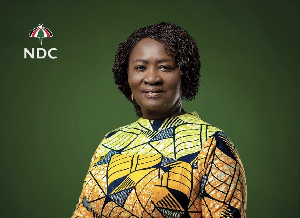He was a wide-eyed eight-year-old boy named Nana Poku. On a crispy autumn morning in 1988, he arrived at John Fitzgerald Kennedy International Airport-with his six-year-old sister, Victoria, in tow. While his mother stayed behind in their Massachusetts home, his father had traveled to Ghana to bring the precocious boy and his little sister to the United States. Though his mother was at the airport excitedly waiting when Nana Poku and Victoria arrived, he did not recognize the woman who had given him life eight years earlier-and had left him in Ghana shortly after his fifth birthday.
When his mother knelt down to embrace them, the way only a mother could, her touch felt familiar. And when she spoke, her voice sounded like his mother’s; he then yelled out: “Mommy!” His mother’s eyes welled up. As Nana Poku joyfully told his mother about his trip, his six-year-old sister stood still, as she did not know/recognize her mother, at all. A little over a year after arriving at JFK, Nana Poku’s older sister, Emily, then eleven years old, also arrived via the same airport. After years of residing with relatives in the Motherland, Nana Poku was now living with his mom, dad, and two sisters. He was, indeed, a happy little man!
However, things hadn’t been as rosy for him at school as they were at home. He had a tribal mark on his face, and did not have a Westernized name like his sisters; as you can imagine, he was questioned about the “scar” on his face and the meaning of his name. Being a little boy, he was not able to explain sufficiently either the facial mark or the definition of his name. He thus stuck out like a sore thumb, and the schoolyard bullies were merciless. He did not experience this kind of cruel teasing in Ghana, where his teachers and classmates alike doted on him, for he was a smart little boy. But now, almost everyone mocked him in school and he began to regret coming to America.
Much like his mother’s brother, Nana Poku wanted to be a doctor. But as time passed, the teasing from the other children became unbearable, and he started to resent going to school. Nana Poku would start to act out his frustrations! He became confrontational with his teachers and was also defiant, exhibiting signs of a troubled youth. He was disruptive in the classroom, and the other kids loved him for it. He became the “class clown” and found acceptance among his peers. The teasing now ceased!
He lost interest in academics and found solace in creating jokes for his classmates, as that was what had garnered him respect(?) and acceptance from them. His behavior at school became so belligerent that the authorities threatened to terminate him, but he was incorrigible. Eventually, they had no other choice but to expel him from school. Nana Poku was only 11 years old and in the fifth grade at the time (Primary 5).
At home, he became rambunctious and his parents felt helpless. They started to threaten to send him back to Ghana if he did not stop misbehaving; this threat would deter him for a while, but then, he would revert to his old antics. Nana Poku’s sisters had adjusted to their new lives in the United States and were doing fine, so their parents could not grasp why their son was having a hard time assimilating. Now at their wits' end, Nana Poku’s parents hired a private tutor into their home to provide their son with some tutorials.
The educator tolerated Nana Poku’s behavior for a few weeks and decided he was too difficult a child for her to handle, so she quit. After several tutors had come and gone, his parents gave up. Although a choice worth considering, his father refused to move to another (school) district. So, while his parents were at work and his sisters were at school, Nana Poku stayed home and watched television. He started roaming the streets whenever he got tired of watching violent movies on television; he had also picked up the habit of smoking cigarettes while on the streets.
As his parents slept, he would take his mother’s car keys and sneak out of the house. One night, the police had to escort Nana Poku home in the middle of the night. He was then fourteen years old. His encounter with the police was the last straw for his parents. After years of issuing idle threats to send him to Ghana if he did not behave himself, Nana Poku’s parents finally made good on their word and sent him home in the spring of 1994.
When Nana Poku arrived in Ghana, he stayed with a faculty member at a well-known boys’ secondary school. Due to his “American mannerisms” and the fact that he lived with a member of the staff, some of the students, and even some faculty members, adored him. Nana Poku absolutely loved his new environment! He started to show enthusiasm in academics again, but his interest in his decadent lifestyle outside of the classroom superseded that of his interest in his schoolwork.
While in Ghana, Nana Poku learned how to smoke marijuana; and with a few dollars in his pocket, he was able to date ladies as old as 18 to 20-something. He attended parties and nightclubs; he indulged in binge drinking and other social vices. He loved being in the country so much so that, he started to wonder why his parents had threatened to send him there as if it was such a terrible place to be! In fact, he wished they had sent him to Ghana earlier than they had. Unfortunately, the staff member he was residing with at the school could not deal with Nana Poku’s behavior any longer. After a few months, he called his parents and asked them to retrieve their son from his care -Nana Poku bade farewell to Ghana a second time!
Now back in the United States, there was nothing else Nana Poku’s parents could threaten him with, for he had seen how exciting and carefree life in Ghana can be for a teenager. So, with nothing to deter him, he started getting into serious trouble with the law. He was first arrested, charged with misdemeanors, and sent to a Juvenile Detention Center, but was later released. Then, as time passed, some of his crimes escalated to felonies. By the time he was classified as an adult (18 years old), he had been incarcerated at the Juvenile Detention facility on multiple occasions.
Nana Poku is now 29 years old. While his sisters are gainfully employed and are productive members of society, Nana Poku has not amounted to much. In other words, after two decades of living in the United States, Nana Poku has nothing to show for it but his fifth-grade education and a prison record. As I write this article, Nana Poku is wasting away at a maximum-security prison facility somewhere in the United States.
The story I have numerated for you is a true-life story. There are a lot of Nana Pokus in the Ghanaian communities in Europe and in North America-namely Britain, Canada, and the United States. What I hope to achieve with this article is to seek some answers as to why some Ghanaian boys who migrate to the West at a young age, or who are born overseas, sometimes end up in prisons, or end up senselessly murdered at a young age. In recent times, one cannot visit the Diaspora section of Ghanaweb.com in a course of a week or two without reading a story about a teenage boy of Ghanaian descent being shot or stabbed to death. And one cannot go through a month or so without reading in the local papers that a young man of Ghanaian descent has been killed or arrested for a crime.
Of course, some boys of Ghanaian descent in the West effortlessly make the transition from boys to responsible men who contribute meaningfully to society, i.e. lawyers, accountants, etc. But too many of these boys are falling through the cracks. Why is it that the Ghanaian youngsters in the West who get into trouble with the law are almost always males? The worse the girls tend to do is become teenage mothers; even at that, they still manage to go back to school or enter the work force and become responsible women. You would be hard-pressed to hear that Ghanaian girls who grew up in the West have become prostitutes-which to me, is equivalent to the boys dealing in illicit drugs. (If there are cases of prostitution among the girls, of course, I stand to be corrected.)
I remember in our old neighborhood, there was a Ghanaian woman who was left to raise two teenage boys and a girl, after her husband moved back to Ghana permanently. While her daughter is now juggling family and corporate life, her sons did not do much with their lives. One of the boys had so many encounters with the law that the United States government eventually deported him. Although the other boy did not have any brushes with the law, he lived with his mother well into his mid-thirties-he could not make it on his own. People have often blamed the mother for the outcome of her sons’ lives and have also called her a bad parent, but I believe otherwise. Had she been a bad mother, would her daughter have succeeded in life?
While some of the Ghanaian boys I attended High School with have become productive members of society, others are in jail or have been deported by the Immigration and Naturalization Service due to their criminal activities. But I can assure you that, the females amongst us are either in the work force or are homemakers. So, back to my question: What is the explanation for the gap between the boys and the girls, as far as adjusting to life in Western society is concerned? Why are so many Ghanaian boys, teenagers, and young men struggling to fit into Western societies? Could it be that the parents are stricter on their daughters than they are on their sons, hence the boys do not have qualms about getting into trouble? Is it psychological? If so, will the psychologists amongst us shed some light on the situation?
We are also interested in hearing from all those who wish to respectfully express their points of view and what they think can be done to help these boys. Because, after all, these boys are part of Ghana’s future, no matter what nations' passports they may hold.
Lola, Washington, DC
*Nana Poku is a real person; his name and location have been changed to protect him. If you wish to discuss this issue further, I can be reached at dc_lola@yahoo.com.












